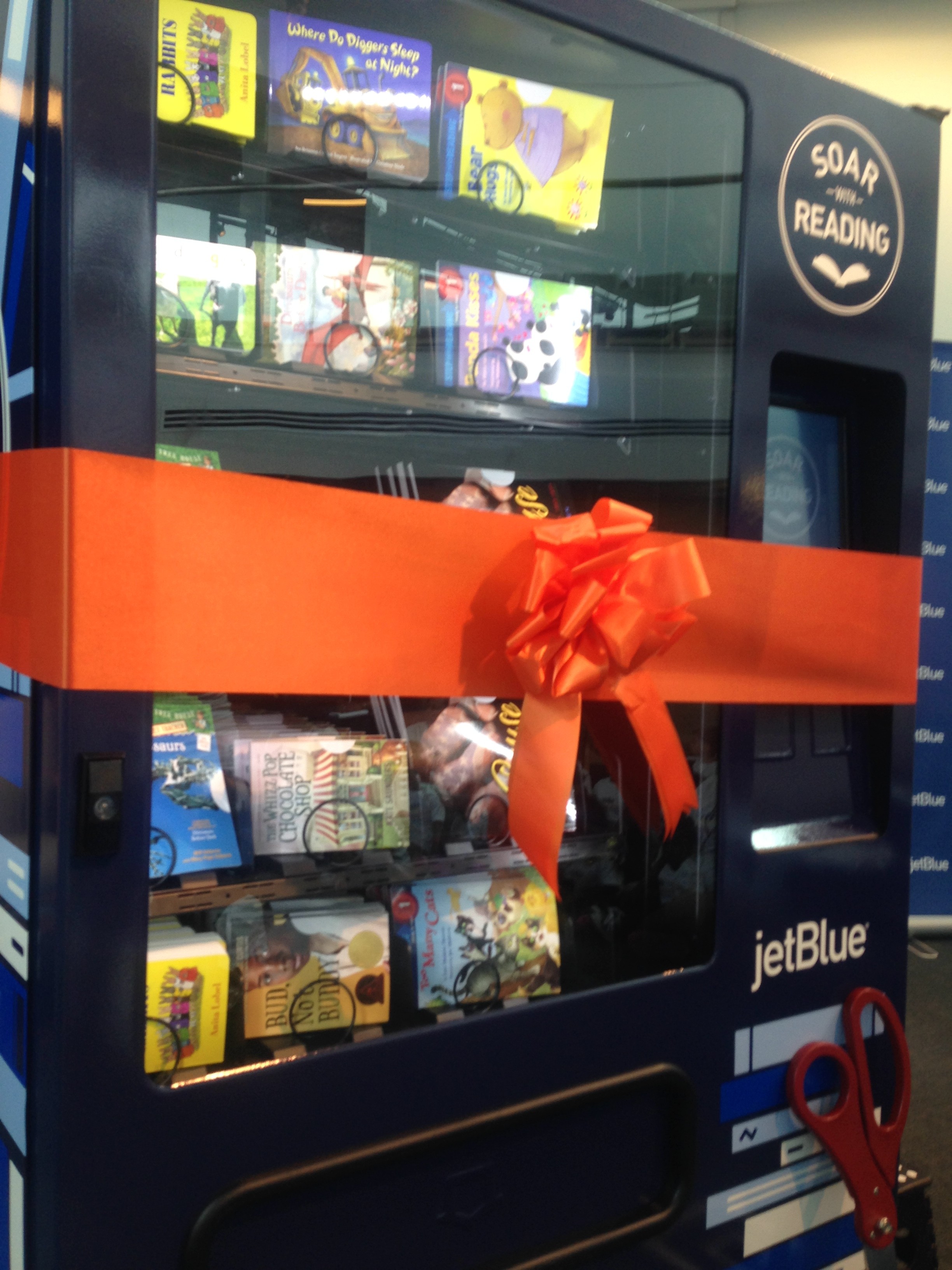WASHINGTON — Literary deserts, places where children and parents lack access to quality books, are prevalent in low-income urban neighborhoods across the United States. And these book-dry neighborhoods and homes can negatively impact children’s literacy.
Innovative programs, such as book vending machines that are hitting the streets of the Anacostia neighborhood in Washington, aim to combat the literature deserts.
William Teale, a professor of literacy, language and culture at the University of Illinois at Chicago and director of its Center for Literacy, said much research has shown the importance of reading to children.
“When parents read to their children at home it’s advantageous, no matter whether it’s preschool or later in more formal schooling,” Teale said in a phone interview. “There’s an immediate impact of having been read to as a child in terms of your academic achievement.”
And that benefit persists in later years. But when comparing access to books between affluent and economically challenged communities, differences appear, he said.
“Even if you were interested and willing and able to read to your child, books are expensive,” Teale said.
The public library system is available throughout the country, but if a branch isn’t convenient for parents, alternatives may be hard to find, Teale said.
Susan Neuman, professor of Childhood Literacy and Education at New York University, published her research on book deserts in 2001.
Neuman looked at four neighborhoods in Philadelphia, two low-income and two middle-income areas, and compared book availability in both. In assessing the number of books available at schools, public libraries and stores, Neuman found stark differences along economic lines.
In the Kingsessing neighborhood, where 90 percent of residents lived in poverty, parents could purchase 55 different children’s books at four stores, the study said. In Chestnut Hill, an affluent neighborhood, parents had a choice of 16,453 children’s titles for sale at 11 stores in the neighborhood. She also found that more books were available at public schools and libraries in the more affluent neighborhoods.
Grover Whitehurst, a senior fellow at the Brookings Institution’s Center on Children and Families, said in a phone interview that geography plays a role in literacy. But he said parental income and education levels also matter.
“I think the problem, and it’s a serious problem, is more driven by what parents know and think they should be doing with the young kids,” Whitehurst said. “ And what they feel capable and experienced doing.”
When parents have weak reading skills, Whitehurst said, they don’t interact with their kids through literature. The result is that children learn fewer words and start school behind better-read classmates. This affects children’s grades and whether they graduate high school on time and attend college, he said.
“If you don’t have that vocabulary, if you don’t have that knowledge of the world you fall behind in reading,” Whitehurst said of family interaction. “When you fall behind in reading you want to do less of it.”
In Washington’s Anacostia neighborhood, Soar With Reading is installing book vending machines through a pilot program funded by JetBlue Airways Corp. It aims to make a dent in the book desert problem by dispensing free books through vending machines.
The machines, being introduced in Washington, offer 100,000 books at no cost for children and will be placed at a Safeway grocery store, a Salvation Army and a church in the neighborhood, according to JetBlue.
Maria Beckham, 43, a mother of six who attended the ribbon cutting for the new vending machine program, said she thinks it’s a great idea to pick up books at the grocery store or church.
“If the library’s closed, you don’t have anywhere else to go to get books or anything for your kids,” Beckham said.
The vending machines could be coming to another major U.S. city soon. Residents in Detroit, Houston, Fort Lauderdale, New York City and Los Angeles can vote to get the high tech book disbursement program in their cities.
At the ribbon cutting, children lined up in front of the glowing machine to pick their first free book. One child rushed through the touch screen instructions, but paused as his three age-appropriate options appeared on the touch screen. Slowly he pushed his finger on the electronic pad as a book about dragons dropped from the machine’s metal coils.



